Self Privacy

In what ways do governments regulate privacy rights ?
Governments regulate privacy rights through legislation, enforcement agencies, self-regulation, and public awareness campaigns. Legislation defines what constitutes personal information and sets guidelines for its collection, use, and disclosure. Enforcement agencies oversee the implementation of privacy laws and handle complaints from individuals regarding the misuse of their personal information. Self-regulation encourages industry groups to develop codes of conduct or standards that promote privacy protection. Public awareness campaigns educate citizens about their privacy rights and how to protect themselves online.

What is the definition of privacy rights ?
The text discusses the definition and importance of privacy rights, which are fundamental human rights that allow individuals to control access to their personal information and protect themselves from unreasonable interference or intrusion into their private lives. Privacy rights include the ability to choose what information about oneself is disclosed and to whom, as well as the power to determine how that information is used. The key aspects of privacy rights include control over personal information, protection from unreasonable interference or intrusion, and autonomy and self-determination. Privacy rights are essential for maintaining individual freedom and dignity, promoting trust and confidence in society, and creating a more just and equitable world where everyone has the opportunity to live their lives with dignity and autonomy.
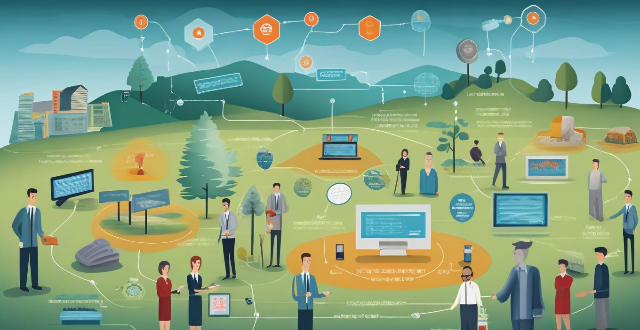
Can blockchain technology improve data security and privacy ?
Blockchain technology has been touted as a revolutionary tool that can improve data security and privacy. Its decentralized nature, encryption, and transparency make it difficult for attackers to compromise the network. Additionally, its anonymity, control over personal data, and smart contracts enhance privacy by giving individuals more control over their information.

What are the consequences of violating someone's privacy rights ?
Violating someone's privacy rights can lead to legal penalties, damaged relationships, professional consequences, and online repercussions. It is important to respect others' privacy to maintain trust, avoid social isolation, and protect one's reputation.

Why is data privacy important ?
Data privacy is crucial in the digital age, protecting individuals and benefiting organizations. It ensures control over personal information, prevents misuse, and builds trust. Organizations mitigate risks, gain customer loyalty, and comply with laws by prioritizing data privacy. Key principles include transparency, individual control, data minimization, and security measures. Data privacy will continue to shape the relationship between individuals and technology, balancing innovation and privacy rights.
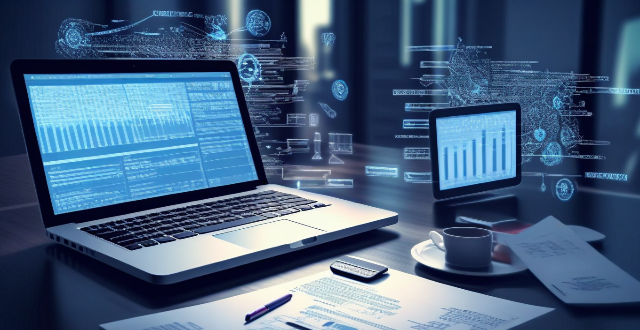
How can I protect my personal data privacy ?
In the digital age, protecting personal data privacy is crucial. To enhance privacy, use strong and unique passwords, enable two-factor authentication, keep software up-to-date, be cautious with public Wi-Fi, monitor your online presence, use antivirus and anti-malware software, educate yourself about phishing scams, and control app permissions. Staying vigilant and informed is key to safeguarding your online privacy.

How can individuals protect their privacy rights online ?
In today's digital age, protecting your online privacy is crucial to safeguarding your personal information from potential threats and misuse. Here are some key steps you can take to ensure your privacy rights are upheld while browsing the internet or using online services: Use strong passwords and two-factor authentication, be cautious with personal information, use encrypted connections, keep software up-to-date, review privacy settings regularly, and educate yourself about online scams and phishing attempts. By implementing these strategies, you can significantly enhance your online privacy and reduce the risks associated with sharing personal information on the internet.
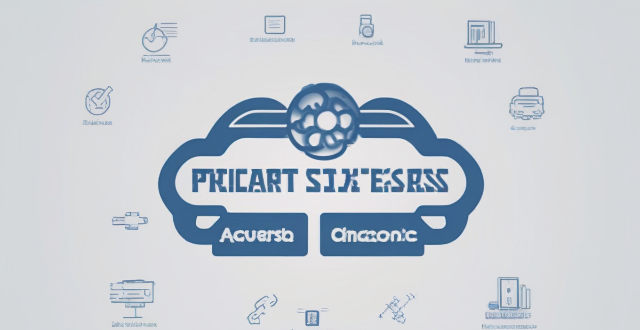
How have recent data breaches impacted public perception of privacy rights ?
The text discusses the impact of recent data breaches on public perception of privacy rights. It highlights increased awareness of privacy risks, demands for stronger protections, loss of trust in institutions, and a shift towards privacy-focused technologies. The text emphasizes the importance of prioritizing privacy rights to ensure that personal information remains secure and protected.

What is online privacy and why is it important ?
The text discusses the definition and importance of online privacy, which is the ability to control personal information when using the internet. Online privacy protects sensitive data such as browsing history, location, communications, and personal details from being accessed, collected, or used without consent. It is important for protecting personal information, allowing control over personal data, enabling freedom of expression, building trust in digital services, and ensuring economic benefits. Best practices for online privacy include using strong passwords, keeping software up-to-date, being cautious on social media, avoiding public Wi-Fi, reviewing privacy policies, and monitoring financial statements for signs of fraud or identity theft.

Can social media platforms be held accountable for breaches of privacy rights ?
The article discusses the accountability of social media platforms for privacy rights breaches and outlines legal frameworks, challenges, and best practices to ensure user data protection.

How can I protect my online privacy ?
In today's digital age, online privacy is a major concern. Here are some tips to help you protect your online privacy: Use Strong Passwords: Use a combination of letters, numbers, and symbols; avoid using personal information; change your passwords regularly. Be Careful with Personal Information: Don't share too much; be wary of scams; keep sensitive information private. Use Two-Factor Authentication: Enable two-factor authentication (2FA); use authenticator apps; be cautious with backup codes. Keep Your Software Up-to-date: Update regularly; use antivirus software; be cautious with downloads. Use Encryption: Use HTTPS; use VPNs; encrypt sensitive files. Be Careful on Social Media: Adjust privacy settings; think before you post; be cautious with friend requests.
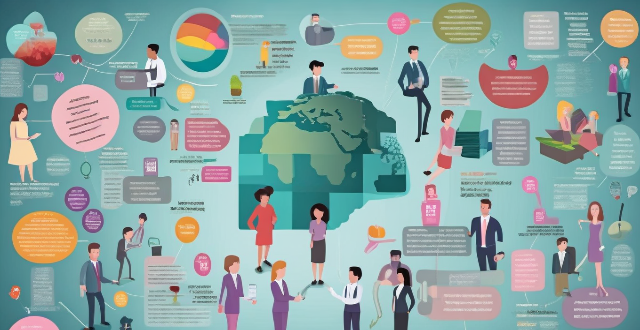
How do privacy rights differ across countries and cultures ?
Privacy rights vary across countries and cultures due to differences in legal frameworks, cultural norms, and technological advancements. The United States protects privacy through federal and state laws, while Europe has a unified approach with the General Data Protection Regulation (GDPR). Asia has varying levels of protection, with some countries prioritizing national security over individual privacy concerns. Cultural norms also play a significant role, with individualistic cultures valuing personal privacy more than collectivist ones. Technology advancements have raised new questions about protecting privacy, including surveillance technologies and online tracking practices. Understanding these differences is essential for developing effective strategies to protect privacy both domestically and internationally.

What role does self-awareness play in self-assessment techniques ?
Self-awareness is a crucial component of self-assessment techniques, helping individuals identify strengths and weaknesses, set realistic goals, enhance emotional intelligence, improve self-confidence, and foster personal growth.
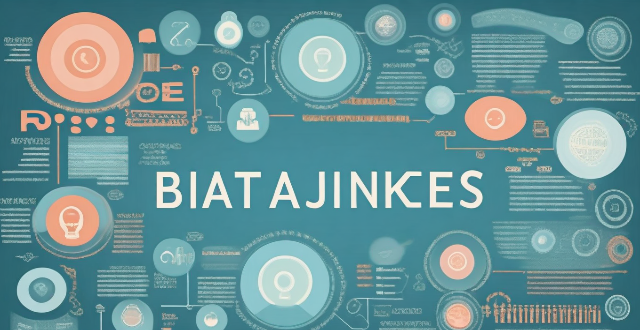
What is the difference between data privacy and data protection ?
The text discusses the difference between data privacy and data protection, emphasizing that understanding these concepts is crucial for managing personal information responsibly. Data privacy focuses on individual rights to control personal information, while data protection emphasizes organizational measures to safeguard that information. Both are essential for building trust and ensuring responsible data handling.
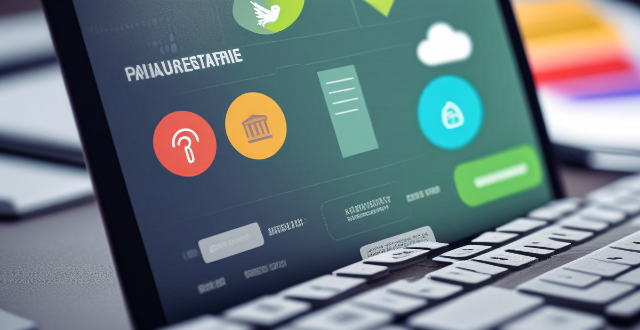
**Is my data safe with iCloud's privacy features ?
iCloud, Apple's cloud storage service, offers several privacy and security features to protect user data. These include Private Relay for anonymous browsing, end-to-end encryption for secure transmission, two-factor authentication for account security, tracking prevention for apps and websites, data breach notifications, encrypted cloud storage, privacy reports, password security monitoring, child safety features, and regular security updates. While these features provide robust protection, users should still practice good digital hygiene to further safeguard their data.
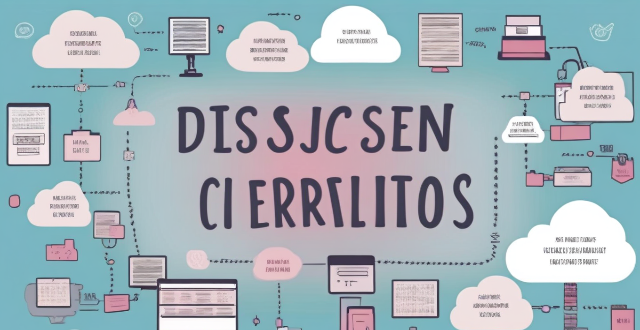
**What are the privacy concerns I should be aware of when using iCloud ?
The text discusses privacy concerns related to the use of iCloud, highlighting key points such as data encryption, access control, data retention, potential for data breaches, sharing and collaboration risks, and the importance of understanding Apple's privacy policies. It emphasizes the need for users to be aware of these concerns and take necessary precautions to protect their personal data stored on the cloud service.

How do I disable location services on my iPhone for added privacy ?
This text provides a comprehensive guide on how to disable location services on an iPhone for enhanced privacy. It begins by explaining the importance of enhancing privacy, such as preventing targeted advertising and reducing the risk of data falling into the wrong hands. The steps to disable location services include accessing settings, navigating to privacy, locating location services, managing location services, and system services. Additionally, it offers additional privacy tips like limiting ad tracking, regularly reviewing app permissions, and using VPN for added security. Overall, this text is informative and useful for those looking to enhance their privacy on their iPhone.
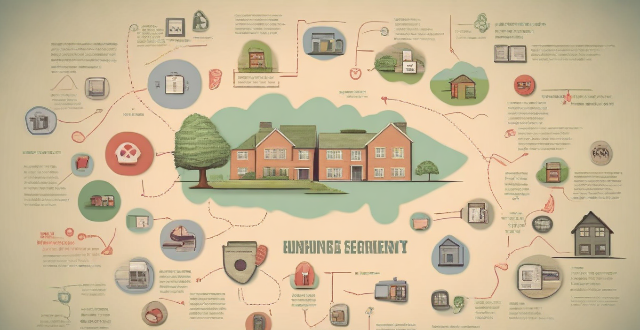
What are the privacy concerns associated with using smart home devices ?
Smart home devices, while convenient, raise privacy concernsSmart home devices, while convenient, raise privacy concerns security vulnerabilities, raise privacy concerns due to data collection, security vulnerabilities, third-party access issues, lack of transparency from manufacturers, permanent data retention, and evolving legal frameworks. Users should research devices thoroughly and take steps to protect their privacy.

How can women build their self-confidence in the workplace ?
The text provides a summary of how women can build self-confidence in the workplace through embracing achievements, setting realistic goals, developing new skills, practicing self-care, surrounding themselves with positive influences, speaking up and owning ideas, seeking mentorship, challenging themselves, celebrating uniqueness, and learning from failure.

What role does data privacy play in the use of data analytics in education ?
Data privacy is a crucial aspect of educational data analytics, ensuring the protection of student information, compliance with legal frameworks, and building trust among stakeholders. It encompasses measures such as maintaining confidentiality, integrity, and availability of data, adhering to regulations like FERPA, and obtaining explicit permission from students and parents. Challenges include potential misuse of data, bias, and discrimination. Best practices involve developing clear policies, implementing technical measures like encryption and access controls, and educating staff and students about their rights. By addressing these challenges and implementing best practices, educational institutions can harness the power of data analytics while safeguarding the privacy rights of their students.

What are the laws and regulations surrounding online privacy in my country ?
In my country, online privacy is governed by a set of laws and regulations designed to protect individuals' personal information from unauthorized access, use, or disclosure. These laws and regulations cover various aspects of online privacy, including data collection, storage, processing, sharing, and security. Organizations must obtain explicit consent before collecting any personal information and should only collect the minimum amount necessary for their intended purpose. Personal information must be stored securely and retained for only as long as necessary. Accurate and fair processing of personal information is required, and transparency is essential when sharing data with third parties. In the event of a data breach, organizations must notify affected individuals and relevant authorities within a specified timeframe. Regular risk assessments are also necessary to identify potential threats to the security of personal information and implement appropriate measures to mitigate these risks. By adhering to these laws and regulations, organizations can help ensure that individuals' online privacy is protected and that their personal information remains secure.
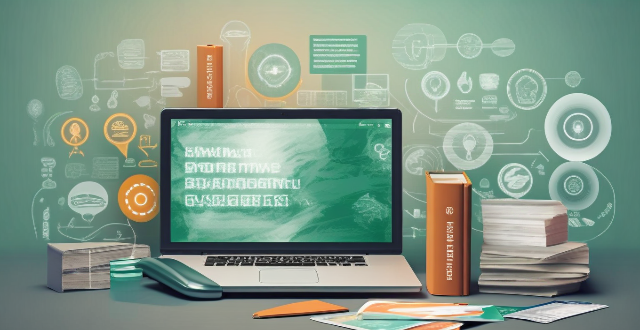
What are some common online privacy breaches and how can I prevent them ?
In today's digital age, online privacy breaches are becoming increasingly common. To protect your sensitive data, it is essential to understand the risks involved and take necessary precautions. Some of the most common online privacy breaches include phishing attacks, malware infections, unsecured networks, social engineering tactics, and data breaches. Effective prevention strategies for these breaches include being skeptical of suspicious emails or messages, using anti-phishing tools, regularly updating software, using antivirus software, avoiding suspicious downloads, using virtual private networks (VPNs) on public Wi-Fi networks, securing your home network with strong passwords and encryption settings, educating yourself about social engineering tactics, being cautious with personal information, verifying requests for sensitive information, monitoring your accounts for suspicious activity, using strong passwords, and enabling two-factor authentication. By following these strategies, you can significantly reduce the risk of online privacy breaches and protect your sensitive data from unauthorized access.

In what ways do sports promote self-discipline and self-control ?
Sports play a crucial role in promoting self-discipline and self-control by teaching goal setting, time management, perseverance, impulse control, delayed gratification, and stress management. These skills are essential for success in all areas of life, including personal and professional relationships, academics, and careers. By participating in sports, individuals develop valuable character traits that can lead to long-term success and well-being.
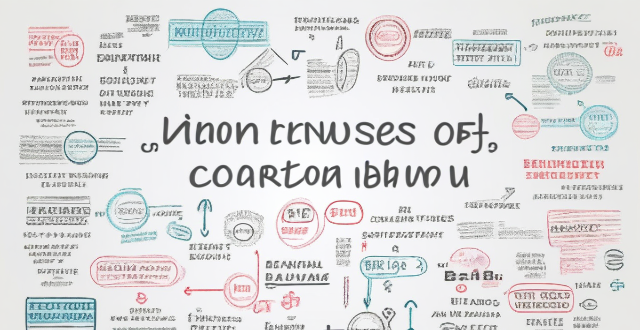
What are the benefits of using a virtual private network (VPN) for online privacy ?
The text discusses the benefits of using a Virtual Private Network (VPN) for online privacy. It highlights five key benefits: encryption and security, anonymity and privacy, unrestricted access to content, protecting personal information, and avoiding bandwidth throttling. The text explains that a VPN encrypts internet traffic, making it difficult for hackers or third parties to intercept data. It also masks the user's IP address and physical location, making it harder for websites and advertisers to track online activities. Additionally, a VPN can bypass geo-restrictions and censorship, allowing users to access blocked content. Finally, a VPN can protect personal information from being leaked or stolen and prevent ISPs from throttling bandwidth. Overall, using a VPN can provide several benefits for online privacy.

How can we promote self-care and self-love for women's mental health ?
Promoting self-care and self-love for women's mental health requires a comprehensive approach that includes creating awareness, providing resources, and establishing supportive environments. This involves understanding the importance of mental health, dispelling misconceptions, normalizing conversations, providing accessible information, offering therapeutic support, building community networks, implementing workplace initiatives, advocating for policies, encouraging mindfulness and meditation, promoting healthy lifestyle habits, and fostering self-reflection and growth. By adopting these strategies, we can empower women to take charge of their mental health and lead fulfilling lives.
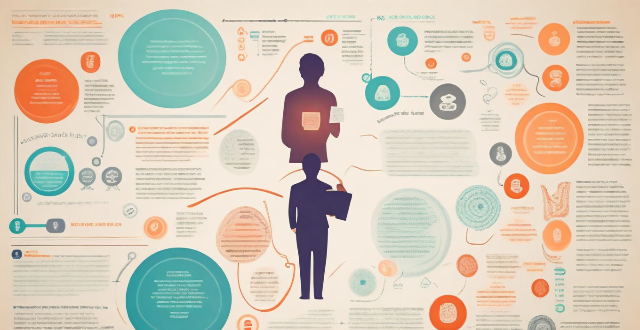
What are the key self-assessment techniques for personal growth ?
Self-assessment techniques help identify strengths, weaknesses, and areas for improvement. Key methods include reflecting on past experiences, setting goals and tracking progress, seeking feedback from others, keeping a journal or diary, and practicing mindfulness and self-awareness. These techniques provide different perspectives and help individuals understand their personal growth over time.

What is the relationship between self-efficacy and motivation in learning ?
This article explores the relationship between self-efficacy and motivation in learning. It explains how self-efficacy affects motivation, including choice of activities, level of effort and persistence, and emotional response to setbacks. The article also provides suggestions for enhancing self-efficacy to increase motivation, such as providing opportunities for mastery experiences, modeling successful performance, offering positive feedback and encouragement, and helping students set realistic goals.

How does exercise influence self-esteem ?
Exercise has a profound impact on self-esteem, positively influencing confidence, body image, and mental health. Physical benefits include weight management through fat reduction and muscle tone, as well as improved cardiovascular health and immune system function. Mental benefits include stress reduction through endorphin release and mindfulness, and enhanced cognitive function with improved memory and problem-solving abilities. Social benefits come from community building through group activities and support systems, as well as personal achievement through goal setting and feedback. Overall, regular physical activity can significantly enhance self-esteem by promoting physical, mental, and social well-being.

Are there any particular self-defense techniques recommended for female travelers ?
Self-defense techniques are essential for female travelers to stay safe while exploring new places. Learning basic self-defense moves, taking a self-defense class, and practicing situational awareness can help reduce the risk of becoming a victim of crime during travels. It is crucial to trust your instincts and seek help if needed.

How often should I perform a self-assessment to track my progress ?
Self-assessment is essential for monitoring progress in various aspects of life. The frequency of self-assessment depends on individual goals and the specific area of focus. For short-term goals, weekly or bi-weekly assessments are beneficial, while medium-term goals require monthly evaluations. Long-term objectives need less frequent but more comprehensive quarterly or semi-annual reviews. Key elements of effective self-assessment include clarity on goals, measurable criteria, reflection, adjustment, and accountability.